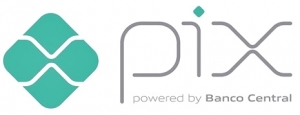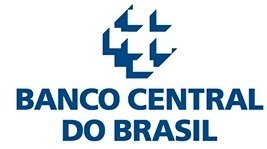
Brazil’s central bank – Banco Central do Brasil (BCB) – launched testing of a new real-time digital payment system based on QR codes and is expected to go live by November this year.
Use of the new payment system called PIX will be mandatory for regulated banks and financial institutions with more than 500,000 customers in the country.
How PIX will work
The new system will allow digital payments through mobile phones, online banking and ATMs by using QR codes or entering a phone number, email address or tax identification number.
PIX will let also let users make person-to-person payments and money transfers in as little as two seconds according to BCB Financial System Director João Manoel Pinho de Mello. By the end of this year, the government also hopes consumers will be able to pay taxes as well as receive tax refunds and social benefits with the new system.
Will reduce cash and card payments

The new payment system is aimed at reducing the use of cash as well as credit and debit cards in order to provide a faster, less expensive national payment system using infrastructure operated by the Banco Central do Brasil.
“This is one of the most important projects that we have this year. The world demands a payment instrument that is cheap, fast, transparent and secure,” said BCB President Roberto Campos Neto. “If we think in terms of bitcoin and cryptocurrencies, they are born out of these needs, these characteristics. And Pix is our answer to these systems,” Campos Neto added.
Brazil, like many countries, has been wrestling with regulations on digital payments and cryptocurrency exchanges in particular and the National Congress is reviewing three different bills to regulate the growing sector.
Mandatory for large institutions

An estimated 30 financial institutions control 90% of the country’s banking transactions including the country’s five major banks, Bradesco, Itaú, Banco do Brasil, Caixa Econômica Federal, and Santander, and the digital banks Inter, Original and Nubank.
Financial institutions with more than 500,000 customers must use the new system and make it available to customers. Remaining institutions that do not qualify, will be required to design new ways to comply with the new system.
Alternate payment systems growing
An estimated one in three Brazilians are unbanked or underserved and depend on the use of popular cash vouchers called boleto bancario, to make online and other payments. That’s created an appetite for new fintech solutions in the country which has also embraced e-commerce quickly.

One innovation is a new plan by Uber in partnership with EBANX that allows consumers to add credit to their Uber Cash balance through bank slips, transfers or cash vouchers, instead of being limited to payments only through credit cards.
“Offering boleto and bank transfers as payment options on Uber empower financially underserved populations to access Uber and pay conveniently and securely. This includes consumers who don’t have a credit card and often don’t even have a bank account,” said João Del Valle, co-founder, and COO of EBANX. “Our partnership with Uber leverages innovative technological solutions to promote financial and digital inclusion, perfectly aligned with EBANX’s vision of increasing access to the digital economy.”
Brazil is also studying “open banking” in order to integrate more closely between traditional banks and popular new fintech services. The government hopes the new PIX system will be fully operating and open to consumers and businesses by mid-November 2020.

